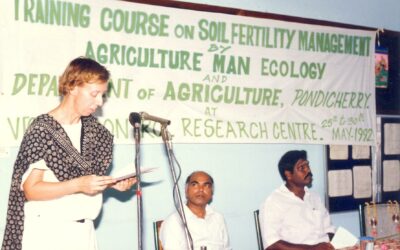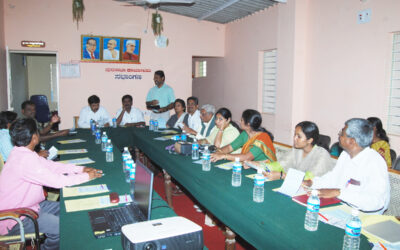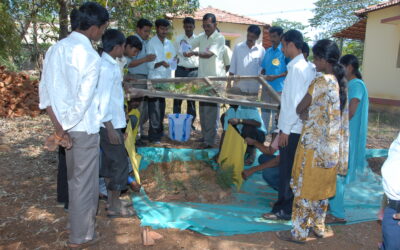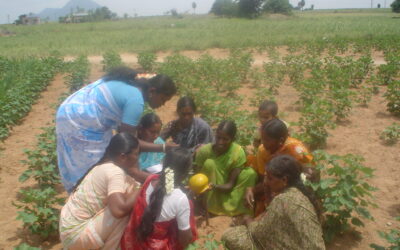Experiential learning based pedagogy, farmer-centric participatory research and knowledge exchange are essential for promotion of agroecological education. Way back in 1982,...
Farm integration returns more
J Krishnan Integrated farming systems (IFS) involves linking several components of the farm system. Resource flows are established between components. The ‘outputs’ from one...
Reaping multiple benefits from biological crop management
T M Radha and J Krishnan Adopting eco friendly practices and enhancing crop biodiversity has several advantages in terms of soil fertility, pest management, crop yields, costs...
A perspective on the working of multistakeholder processes
While multi stakeholder processes is desirable for promotion of agro ecology on a wider scale, in practice, it is not as simple as it is thought to be. AME Foundation’s...
Building knowledge on agroecology – Impact of systematic documentation
Systematic documentation plays a key role in enhancing practical knowledge sharing on agroecology influencing practice, practice based policy, evidence based debate and new...
Knowledge exchange on agroecology – Does it influence practice?
In agroecology, farmers solve their problems adopting practices relying on judgments based on their local conditions, resources and knowledge levels. Farmers continuously learn...
Agroecology in Asia and the Pacific
A summary of outcomes of the regional consultation Conscious of the need to embed agroecology within local and regional socio-ecological realities, the first Multistakeholder...
Building social capital by investing in rural youth
Youth provided with appropriate training and opportunities, have the capacity to engage in activities that bring both economic and social benefits. Building human resources is an...
Insects or Pests? Only practice decides
Insect behavior is largely decided by farming practices. Both plants and insects are mutually dependent. While plants provide food to insects, insects provide the necessary...







